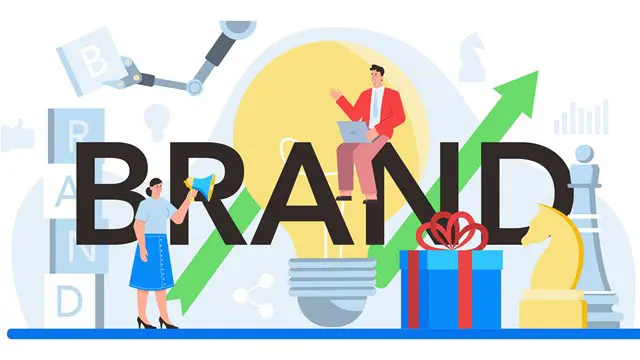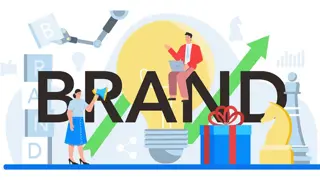
Branding Diploma Level 3
13 Premium Courses Bundle |* Free Reed Provided Certificate *|* Instant Access *| No Hidden Fees | 24/7 tutor support
Global Courses
Summary
- Reed courses certificate of completion - Free
- Tutor is available to students
Add to basket or enquire
Overview
If you want to brush up on your Branding knowledge and abilities, this bundle is the best option for you! Branding is one of the most popular courses, yet many students are unsure of where to begin. You can save 97% off the regular price of these courses by purchasing it for only £119!
The Branding bundle training allows you to learn from industry experts and swiftly acquire the specialised information and skills necessary to succeed in your chosen career path. Become a Branding professional by taking this course and benefiting from a professionally crafted Branding.
Branding bundle can help you get the information and skills necessary to excel in any field. With the Branding bundle course, you'll learn all you need to know to succeed in your career as a Branding professional.
This Branding bundle comes with thirteen pure courses on Branding.
- Course 1: Branding
- Course 2: Business Development
- Course 3: Email Marketing in a Digital World
- Course 4: Product Management
- Course 5: Purchasing & Procurement
- Course 6: Operations Management
- Course 7: Leadership & Management
- Course 8: Team Leader
- Course 9: Recruitment
- Course 10: Stress Management
- Course 11: Anger Management
- Course 12: Risk Management
- Course 13: Time Management
About 32.5 hours are required to finish this Branding bundle Program. In the event that you need help or have any queries about the Branding bundle, you may contact our team of highly qualified teachers.
For a more comprehensive Branding, each of the courses in this program is broken down into a number of carefully developed modules. In order to demonstrate their new abilities and knowledge, students who successfully finish this program will get an electronic certificate. Set yourself apart from the competition with our Branding bundle and get the training you need to get your dream career.
Your dreams may come true with our complete Branding bundle. In order to better prepare for a career as a Branding, students may take advantage of the Branding bundle's comprehensive training. Branding bundle includes everything you need to advance in your chosen field of work.
Get a head start on your professional goals by enrolling in the Branding bundle. With the Bundle Course, you'll stand out from the competition and get the training you need to get your dream career.
Certificates
Reed courses certificate of completion
Digital certificate - Included
Will be downloadable when all lectures have been completed
Curriculum
-
Course 1: Branding 1:49:00
-
Course 2: Business Development 3:15:00
-
Course 3: Email Marketing in a Digital World 2:02:00
-
Course 4: Product Management 1:42:00
-
Course 5: Purchasing & Procurement 1:42:00
-
Course 6: Operations Management 5:55:00
-
Course 7: Leadership & Management 6:39:00
-
Course 8: Team Leader 1:05:00
-
Course 9: Recruitment 1:57:00
-
Course 10: Stress Management 2:40:00
-
Course 11: Anger Management 25:00
-
Course 12: Risk Management 2:44:00
-
Course 13: Time Management 33:00
Course media
Description
These Branding courses were meticulously crafted by the industry specialists who collaborated on them. You'll get a comprehensive overview of the material in-depth for each and every course subject. After finishing this package, Branding skills will help you start and succeed in your professional life.
Learn new skills with Global Courses’ excellent training courses now.
Why do people enjoy and enrol in Global Courses' Branding Course?
- Ensures course quality.
- Complies with UK and EU regulations.
- Cost-effective.
- Variety of courses.
- After finishing your course, you will get an immediate free E-certificate.
- Access to the course right away.
- Accessibility from a laptop, tablet, or smartphone.
- Created by industry experts and experienced professionals.
- Email, Live Chat, and Phone help are available immediately.
- Tutoring is available 24 hours a day, 7 days a week.
Course Curriculum
*** Branding***
Module 1: Importance of Personal Branding for a Business
Module 2: Personal Branding Strategies
Module 3: Positioning Your Brand
Module 4: Performing a SWOT Analysis
Module 5: Communication Strategies for Brand Building
Module 6: Developing Active Listening Skills
Module 7: Networking Strategies
Module 8: Dealing with Difficult People
Module 9: Presentation Skills
Module 10: Persuasion Techniques
Module 11: Negotiation Techniques
*** Business Development***
Module 1: Introduction to Business Development
Module 2: Developing a Business Plan
Module 3: Performance review - where are we now?
Module 4: Planning for the future-where are we going?
Module 5: What resources will we need?
Module 6: Developing a sales and marketing strategy
Module 7: Expanding the market
Module 8: Understanding customers
Module 9: Staffing the business
Module 10: Evaluating financial performance
Module 11: Planning financial requirements
Module 12: Implementing the strategic plan
*** Email Marketing in a Digital World***
Module 1: E-mail Is Still Important
Module 2: You've Received Your Mail! A Return to the Past
Module 3: The Anatomy of an Email and Email Environments
Module 4: The Metrics of Email Marketing
Module 5: The Role of Email in Consumer Decision-Making
Module 6: Making a List Worth Its Weight in Gold
Module 7: A/B Testing and Email Optimization
Module 8: Email Users' Personalities
Module 9: Email and Social-Media: Friend, Ally, or Foe?
Module 10: Integrating Email with Big Data
***Product Management***
Module 1: Product Development and Product Lifecycle
Module 2: Product Pricing Strategies
Module 3: Branding and Packaging
Module 4: Channels of Distribution
Module 5: Types of Warehouses
Module 6: Functions of Warehouses
Module 7: Warehouse Operations & Systems
Module 8: Inventory Management
Module 9: The Warehouse Inventory Cycle
Module 10: Inventory Tracking
Module 11: Warehouse Material Handling
Module 12: Marketing Your Product
*** Purchasing & Procurement ***
Module 1: Supply Chain Management Basics
Module 2: Purchasing and Procurement Basics
Module 3: Types of Purchases
Module 4: The Purchasing Cycle
Module 5: Purchasing Tool Kit
Module 6: Elements of Purchasing
Module 7: Managing Competitive Bids
Module 8: Improving Efficiency and Accuracy
Module 9: Negotiation Techniques
Module 10: Analysing and Reducing Risk in Supply Chain
Module 11: Tools of Trade
***Operations Management***
Module 0: Understanding the Basics of Operations Management
Module 1: Operations Management Introduction
Module 2: Process Management
Module 3: Supply Chain Management
Module 4: Operating Environments
Module 5: Talent Management
Module 6: Supplier Management
Module 7: Manufacturing _ Delivery Operations
Module 8: Succession Planning
Module 9: Project Management
Module 10: Quality Management
Module 11: Creative Thinking and Innovation
Module 12: Communication Skills
Module 13: Negotiation Techniques
Module 14: Change Management
Module 15: Administrative Skills
Module 15: Administrative Skills
Module 16: Conflict Management
Module 17: Stress Management
Module 18: Equality, Diversity and Inclusion
Module 19: Developing A High-Performing Team
Module 20: Risk Management
***Leadership & Management***
Module 1: Understanding Management and Leadership
Module 2: Improving Management and leadership Performance
Module 3 - Human Resource Management
Module 4: Process Management
Module 5: Supply Chain Management
Module 6: Operating Environments
Module 7: Talent Management
Module 8: Supplier Management
Module 9: Manufacturing _ Delivery Operations
Module 10: Succession Planning
Plus more
***Team Leader ***
Module 1: The job of a team leader
Module 2: Team leaders and organisations
Module 3: Team Work
Module 4: Recruiting and selecting your team
Module 5: Leading your team
*** Recruitment***
Module 1: Human Resource Management
Module 2: Hiring Strategies
Module 3: Employee Recruitment
Module 4: Employee Onboarding
Module 5: Employee Motivation
Module 6: 10 Soft Skills
Module 7: Assertiveness and Self-Confidence
Module 8: Coaching and Mentoring
Module 9: Communication Strategies
Module 10: Conducting Employee Review
Module 11: Employee Termination
Module 12: Millennial Onboarding
Module 13: Measuring Results
Module 14: Universal Safety Practices
Module 15: Handling Difficult Customers
*** Stress Management ***
Module 1: Management and Leadership Culture of Excellence
Module 2: Is it better to have Quality Management or Quality Management?
Module 3: Quality and Excellence are two words that come to mind
Module 4: The European Foundation for Quality Management (EFQM) Excellence Model
Module 5: Stakeholder Analysis
Module 6: The Introductory and Advisory Process
Module 7: Stakeholder Analysis
Module 8: Sustainable Business Development and Decent Work
Module 9: Stressful Working Conditions
Module 10: Resources at Work
Module 11: Resource Development and Resilience Among Employees
Module 12: Stress Management and Excellence
Module 13: Organisational Culture and Organisational Leadership
Module 14: Involve Stakeholders
*** Anger Management ***
Module 1: What is Anger?
Module 2: The Anger Process
Module 3: How Does Anger Affect Our Thinking?
Module 4: Managing Anger
*** Risk Management ***
Module 1 - Introduction to Risk Management
Module 2 - Classification of Risk
Module 3 - Enterprise Risk Management
Module 4: Risk Management Process
Module 5 - Risk Analysis & Assessment
Module 6 - Risk Identification: Process & Analysis
Module 7 - The Risk Evaluation Process
Module 8 - Managing Financial Risks
Module 9 - The Fundamentals of Operational Risk Management
Module 10 - Managing Technology Risks
Module 11 - Managing Legal & Political Risk
Module 12 - Environmental Risk Assessment
Module 13 - Market & Social Risk Assessment
Module 14 - Preparing Risk Management Plan: Step by Step
Module 15- Developing a Risk Management Framework
Module 16- Implementing a Risk Management Framework
Module 17- Reviewing and Enhancing a Risk Management Framework
*** Time Management ***
Module 1: Philosophy
Module 2: Develop a personal sense of time
Module 3: Identify long-term goals
Module 4: Make middle-term plans
Module 5: Plan the day
Module 6: Make the best use of your best time
Module 7: Organise office work
Module 8: Manage meetings
Module 9: Delegate effectively
Module 10: Make use of committed time
Module 11: Manage your health
Certification
You will get an instant most valuable Reed provided digital certificate when you have successfully finished your Branding course.
Who is this course for?
A highly driven person who wants to improve their professional abilities and train for the career they desire can benefit from the Branding bundle. Individuals who want to get in-depth knowledge about Branding and stay up to speed with the most recent information may benefit from taking this Branding courses.
Invest in yourself now by taking the Branding bundle and expanding your professional skillset from the convenience of your own home!
Requirements
The Branding bundle has no official entrance criteria, and anybody may join! This bundle is open to anybody who enjoys learning and is willing to put in the effort.
You may learn online using any internet-connected device, such as a computer, tablet, or smartphone. You may study whenever it is convenient for you and finish the Branding courses at your own speed.
All students must be above the age of 16 and have a love for learning and reading.
Career path
This Branding bundle can help you land the career you want in the field. Regardless of your current job situation, the training will help you advance your career. As you complete this Branding courses, you may be able to explore a variety of professional opportunities.
Questions and answers
Currently there are no Q&As for this course. Be the first to ask a question.
Reviews
Currently there are no reviews for this course. Be the first to leave a review.
Legal information
This course is advertised on reed.co.uk by the Course Provider, whose terms and conditions apply. Purchases are made directly from the Course Provider, and as such, content and materials are supplied by the Course Provider directly. Reed is acting as agent and not reseller in relation to this course. Reed's only responsibility is to facilitate your payment for the course. It is your responsibility to review and agree to the Course Provider's terms and conditions and satisfy yourself as to the suitability of the course you intend to purchase. Reed will not have any responsibility for the content of the course and/or associated materials.


